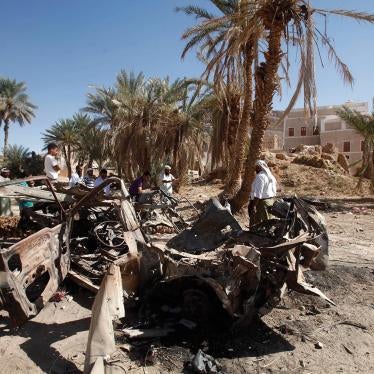Xiengkhuang, Laos
Let me begin by offering a final round of thanks to the government of the Lao PDR, UXO Lao, the National Regulatory Authority, and Dr. Maligna, as well as the government of Australia, Norway, and UNDP for hosting and supporting this important conference. We especially thank you for bringing us to Xiengkhuang, perhaps the most cluster-bombed place on earth, to bring home the realities of the devastating long-term impact of this horrific weapon.
We know that it was not an easy decision for the Lao government to make to host this conference, and we want to express our deep appreciation for the leadership and courage you have shown on this issue. We are convinced that this conference has made a real difference in solidifying support for the Convention on Cluster Munitions in this region and will provide a significant boost to the global efforts to ban and to eradicate the weapon.
We congratulate the governments of Laos and Cambodia for their public statements this week that they will be in Oslo to sign the convention on December 3rd and also the government of Australia for the most welcome announcement we just heard that it too will sign on that date. Thank you all for your leadership and commitment.
We are pleased by the interest and concern shown by Brunei, Indonesia, Malaysia, and the Philippines, all of whom negotiated and adopted the convention in Dublin in May. We anticipate that they too will sign in December and hope to hear public announcements to that effect soon.
We regret that the four other ASEAN members (Myanmar, Singapore, Thailand, and Vietnam) have not yet embraced the Oslo Process or the new convention, though all but Myanmar attended the negotiations as observers, and Myanmar is represented here. We encourage these four to join their neighbors and the majority of the world’s nations in signing the treaty. We hope that there will be ASEAN solidarity and unanimity in joining the convention, though on such an important humanitarian endeavor as this, we believe each nation should weigh the merits on its own, not according to its neighbor’s position.
Indeed, we can see no valid reasons not to join the Convention on Cluster Munitions, especially for states in this region. We have just heard Norway’s Ambassador Kongstad forcefully describe how the negative humanitarian impact of the weapon far outweighs any perceived military necessity. The military utility of cluster munitions has been thoroughly debunked and rejected by more than 100 states that have agreed to ban it, including some of the world’s biggest former users, producers, and stockpilers. In any event, to our knowledge, only three states in the region stockpile the weapon (Indonesia, Singapore, and Thailand), and those appear to be decades-old varieties that are extremely inaccurate and unreliable and might, due to instability, be unsafe for the armed forces to even attempt to use them.
Most of the countries of the region are not affected by cluster munitions and do not have stockpiles, and so should be able to meet the obligations of the convention easily and at very little cost or bureaucratic burden. For those that are affected or hold stocks, the convention holds out the promise of expanded assistance from other States Parties.
While we can see no valid reason not to join the convention, there are many compelling to do so. First and most important of course is the positive humanitarian impact the convention can have. We are convinced, as are many governments, that this convention constitutes one of the most important steps that can be taken to protect civilians from the ravages of war both during conflict and afterwards. It can save thousands if not millions of lives and prevent widespread socio-economic disruption.
It is the only way to fully address the present scourge of cluster munitions and to prevent a future man-made calamity more devastating than the landmine crisis. It should be clear that half-measures and unenforceable restrictions and regulations will not do and that existing international humanitarian law is inadequate to cope with the cluster munition problem.
There will also be political benefits to joining the Convention on Cluster Munitions, which has the support of the United Nations and the majority of the world’s nations.
We need widespread adherence in order to establish a new international norm against the weapon and to stigmatize any use of cluster munitions. Those who are committed to protecting civilians, who are committed to preventing needless deaths and injuries, who are committed to avoiding unnecessary long-term socio-economic damage, will sign the Convention on Cluster Munitions. Those who are not committed to these basic humanitarian objectives will not sign.
We hope and we trust that we will see all of you in Oslo in December.
Thank you.






